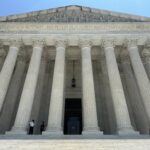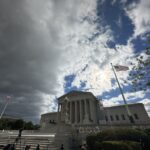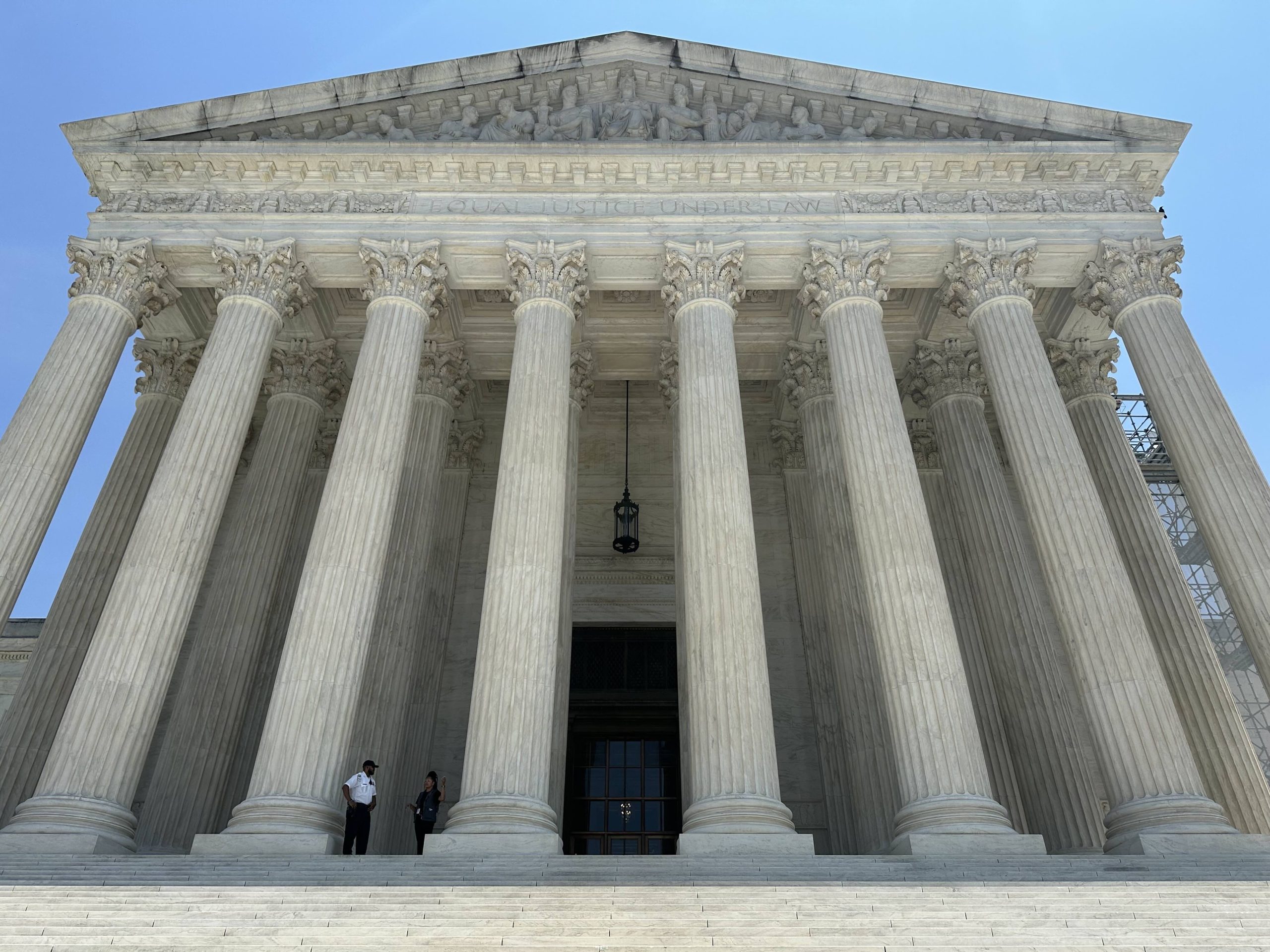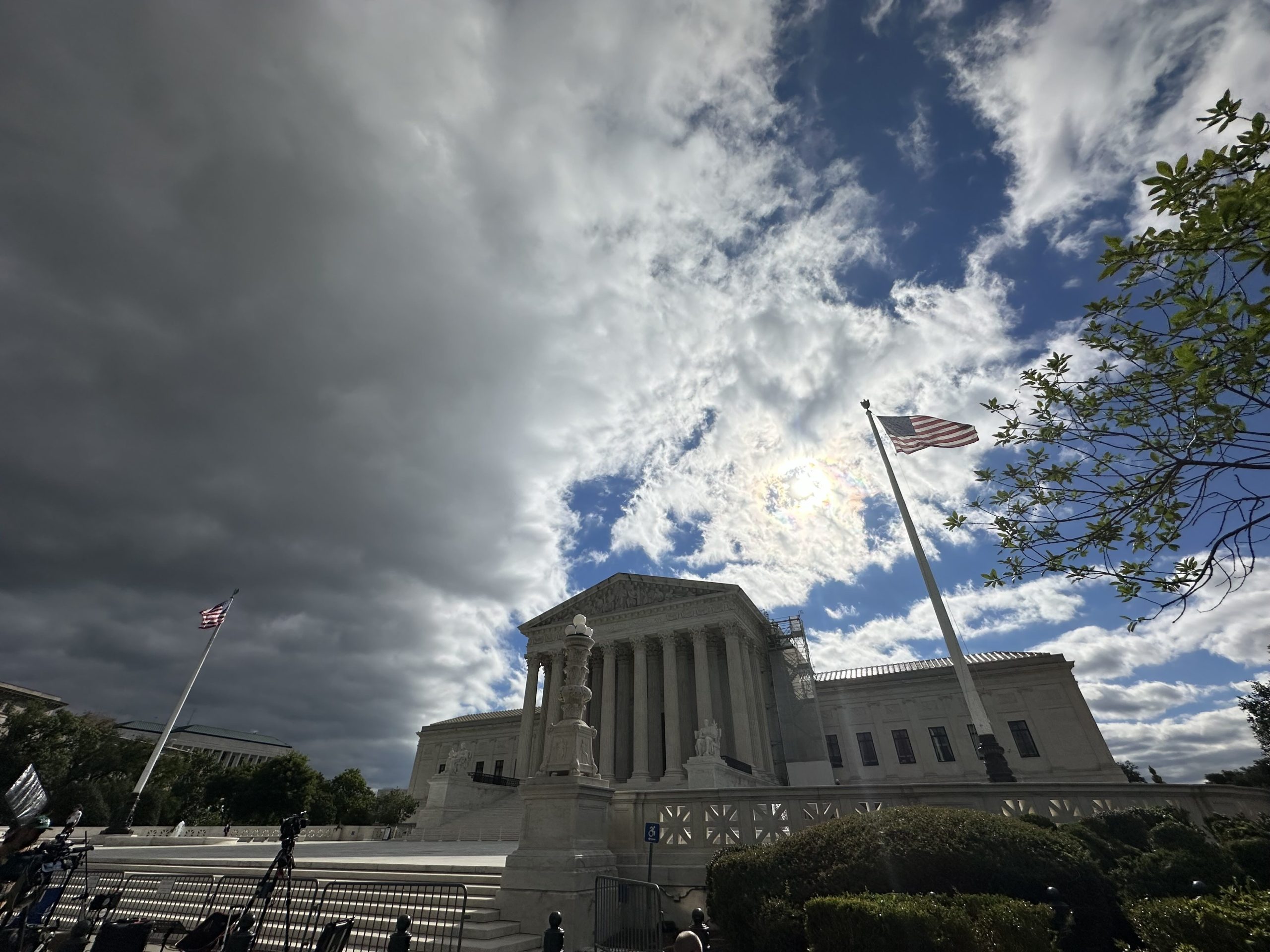In September, the Fourth Circuit Court of Appeals issued a significant decision affecting the hemp industry on the federal level. There has been an open question for some time regarding the legality of certain cannabinoids that do not naturally occur in the cannabis plant but can be created from hemp products. THC-O (tetrahydrocannabinol acetate) is an example of such a compound. State and federal criminal law both ban “synthetic THC.” What exactly counts as “synthetic” THC? I wrote a bit about this ambiguity in the law before, but Anderson v. Diamondback Investment Group, LLC, ___ F.4th ___; 2024 WL 4031401 (4th Cir. 2024), provides some of the first guidance on the issue in the age of legal hemp. Read on for the details.
Synthetic Cannabinoids versus Synthetic THC. As a starting point, it is important to distinguish between “synthetic cannabinoids” and “synthetic THC.” As similar as the names are, they refer to completely different types of substances. Under federal law and state law, “synthetic cannabinoids” encompass a broad category of drugs—cannabinoid receptor type 1 agonists—which are classified by both jurisdictions as Schedule I controlled substances. See 21 U.S.C. 812(d)(1)-(2); G.S. 90-89(7). These compounds interact with the nervous system in much the same way that cannabis does, but the drugs are not derived from cannabis, nor do they naturally occur in cannabis. They are effectively designer drugs that were designed as legal (at the time) alternatives to marijuana, often sold as “incense” or “potpourri.” Synthetic cannabinoids are generally considered much more dangerous than cannabis products, with serious medical complications as potential side effects, such as seizures, hallucinations, and suicidal thoughts. Some readers may remember products like “Spice” or “K2” that were sold in the 2000s and early 2010s before state and federal bans were enacted. Synthetic cannabinoids are categorically not cannabinoids or otherwise related to cannabis.
Separately from synthetic cannabinoids, both state and federal law ban “synthetic THC.” See 21 CFR 1308.11(d)(31); G.S. 90-95(d)(4) (both referencing “synthetic THC”). State law treats synthetic THC has a Schedule VI controlled substance, while federal law classifies it (along with marijuana) as a Schedule I drug. Id. Both the state and federal governments criminally ban synthetic THC without regard to its delta-9 THC concentration—if the product qualifies as a “synthetic” THC, it is categorically illegal. Unlike synthetic cannabinoids, synthetic THC is presumably related to cannabis. Federal regulations offer some examples of what may be considered synthetic THC but fails to precisely define the term. 21 CFR 1308.11(d)(31). State law does not define the term at all.
So, what is “synthetic THC”? Does it include any form of THC that undergoes a process of synthesis? Does it instead refer to THC created from scratch in a lab, full synthesized from other compounds and not derived from substances occurring in the cannabis plant? What if the compound can be derived from hemp, but does not naturally occur in the plant, like THC-O?
Naturally Occurring Cannabinoids versus Derivatives. Prior to the legalization of hemp, this was a nonissue. If a person possessed any form of THC, it was an illegal product, regardless of whether it was derived from cannabis or not. After the legalization of hemp and the proliferation of hemp products with more exotic cannabinoids, though, the definition of “synthetic THC” became an important issue for the hemp industry and for law enforcement. Both state and federal law define hemp to include “all derivatives, extracts, cannabinoids, isomers, acids, salts, and salts of isomers” of a cannabis plant, so long as the concentration of delta-9 THC does not exceed the legal limit of 0.3%. See 7 U.S.C. 1639o; G.S. 90-87(13). At what point (if any) does the process of synthesis convert a hemp-derived cannabinoid from a legal hemp product to an illegal synthetic THC? While we do not have guidance on this question from state law yet, the Drug Enforcement Administration (“DEA”) took the position that if a cannabinoid does not naturally occur in the cannabis plant, it does not count as a “derivative” of hemp and instead qualifies as a Schedule I illegal synthetic THC. See Implementation of the Agricultural Improvement Act of 2018, 85 Fed. Reg. 51639-01, 51641 (Aug. 21, 2020). This interpretation has some appeal from a regulatory perspective, as it sets a bright line rule—if the particular THC at issue does not naturally occur in the cannabis plant, it is a synthetic THC and thus illegal (again, regardless of delta-9 THC concentration). The DEA issued opinion letters applying their interpretation to deem certain cannabinoids like THC-O illegal. All of which brings us to the recent Fourth Circuit case, Anderson v. Diamondback Investment Group, LLC.
Anderson Facts. The case arose from an employment dispute. The plaintiff, Anderson, was terminated from her employment with the defendant after failing drug tests for THC. She maintained that her positive results were due to her use of legal hemp-derived products, including the cannabinoids CBD, delta-8 THC, delta-10 THC, THC-O, and HHC. She sued her former employer, alleging employment discrimination under the Americans with Disabilities Act and North Carolina’s Lawful Use of Lawful Products statute, G.S. 95-28.2. That statute prohibits an employer from discharging an employee based on the employee’s “lawful use of lawful products” under some circumstances, subject to certain exceptions. (The employment law issues of the case are beyond the scope of this post, but it is noteworthy that this seems to be the first state or federal case interpreting that state law.) In defending the employment termination decision against the state law claim, the defendant-employer argued in part that the plaintiff’s use of THC-O was not lawful, because that cannabinoid does not naturally occur in the cannabis plant and therefore qualified as an illegal synthetic THC. It pointed to the DEA’s interpretation in support. The district court granted the defendant’s motion for summary judgment on all claims, and Anderson appealed. At the end of the day, the plaintiff did not prevail on her claims in the Fourth Circuit. The court found that the plaintiff failed to bring forth any evidence that the products she claimed to have been using were in fact within the legal limit for delta-9 THC, and this was fatal to her lawful use of lawful products claim. A majority of the panel nonetheless took the opportunity to examine THC-O and ultimately held that it did not qualify as an illegal synthetic THC.
Anderson and THC-O. In rejecting the defendant’s argument that THC-O was an illegal synthetic THC, the court noted that the Ninth Circuit rejected a similar interpretation by DEA regarding delta-8 THC. While delta-8 THC does naturally occur in the cannabis plant, it appears in such small quantities that commercial extraction directly from the plant is not feasible. However, the substance can be efficiently created from converting CBD once CBD has been extracted from cannabis. In AK Futures, LLC v. Boyd Street Distro, LLC, 35 F.4th 682 (9th Cir. 2022), the defendant argued that the process required to produce delta-8 THC, whereby it is synthesized from other cannabinoids once they are extracted from the plant, meant that delta-8 THC qualified as an illegal synthetic THC. They pointed to the DEA’s opinion about delta-8 THC in support. The Ninth Circuit disagreed, concluding that it was the source of the product that mattered, not the method of production. According to that court, the statutory definition of definition of “hemp” expressly encompasses all products derived from cannabis that are within the legal limit for delta-9 THC. Id. at 692.
The Fourth Circuit in Anderson agreed with the Ninth Circuit’s analysis. In the words of the court:
Between the DEA’s February 2023 letter and AK Futures, we think the Ninth Circuit’s interpretation of the 2018 Farm Act is the better of the two. And we’re free to make that determination ourselves, despite a contrary interpretation from the DEA, because we agree with the Ninth Circuit that § 1639o is unambiguous, and because, even if it were ambiguous, we needn’t defer to the agency’s interpretation [in light of the demise of Chevron deference]. Anderson Slip op. at 17 (internal citations omitted).
In further support of its conclusion, the majority pointed to the National Institute on Drug Abuse’s definition of “synthetic cannabinoids.” As discussed above, these are entirely different drugs, not found in cannabis and not derivable from cannabis. “These definitions [of synthetic cannabinoids] suggest that, rather than originating from organic matter—like the hemp-derived cannabinoids at issue—synthetic cannabinoids are just that: compounds manufactured entirely out of synthetic materials.” Id. at 18.
Takeaways. This decision has major implications for the hemp industry and for federal law enforcement within the Fourth Circuit. While Fourth Circuit decisions are not binding on North Carolina state courts, this decision does affect the DEA and other federal law enforcement within the circuit. For North Carolina state courts, the Anderson opinion could be persuasive authority if similar challenges to hemp-derived cannabinoids arise, especially given that the state and federal definitions of hemp are now identical and include “all derivatives, extracts, cannabinoids, isomers, acids, salts, and salts of isomers.” G.S. 90-87(13).
THC-O and HHC. As a matter of federal law, THC-O is not an illegal synthetic THC, so long as it is derived from a hemp plant and does not exceed the legal limit for delta-9 THC—contrary to the DEA’s interpretation. Presumably, the same rationale would also apply to another cannabinoid mentioned in Anderson but not specifically analyzed: HHC (hexahydrocannabinol). The DEA has taken the same stance with HHC as it did with THC-O—because the compound does not naturally occur in the plant, the DEA considers it illegal. Under Anderson, though, HHC, like THC-O, would be considered a lawful hemp product under federal law if it is derived from hemp and within the limit for delta-9 THC, despite not naturally occurring in the plant.
THCA and Delta-8 THC. Other popular cannabinoids, such as THCA (tetrahydrocannabinolic acid) and delta-8 THC—which do naturally occur in the plant—are also seemingly on stronger legal footing after the Anderson opinion (subject to the same caveat that they must be derived from hemp and not exceed the delta-9 THC limit). The DEA has also concluded that these products are illegal, but Anderson’s logic suggests that the DEA is wrong on that point, at least within the Fourth Circuit. Under Anderson, the delta-9 THC concentration of a product created from hemp is the sole metric of its legality under federal law—including isomers like delta-8 THC, and acids like THCA.
Total THC? The ruling may also create an opening for attorneys to argue about how delta-9 THC levels are calculated by laboratory testing. It is common for labs to combine delta-9 THC and THCA levels to determine “total THC.” A discussion of “total THC” and testing of hemp products is beyond the scope of this post but may be the topic of a future article. Suffice to say for now that there is not clear state guidance on how to accurately measure the delta-9 THC levels of hemp products, and there is debate about how to interpret the federal testing guidelines among the hemp industry and regulators (as discussed in this article by a hemp industry advocate). Attorneys handling a case involving cannabis should consult with an expert when faced with any lab report purporting to determine the legality of a cannabis product.
Hemp Use and Drug Screens. It is worth remembering that the plaintiff in Anderson ultimately lost her case and the termination of her employment for testing positive for THC was upheld by the Fourth Circuit. I will leave it to the employment law experts to opine about the viability of employment discrimination claims for drug tests indicating the presence of THC due to the use of hemp products post-Anderson. But as I noted in my very first post on cannabis back in 2018, it remains a very real possibility that use of legal hemp products will result in a failed drug test, certainly with a high enough dose over a long enough period. In many contexts (such as probation), it may be an uphill battle (though not necessarily an impossible one) for the person facing an adverse consequence due to a THC-positive drug test to prove that the result is from the use of a legal substance and not an illegal one.
Back to Synthetic THC. Finally, to return to the questions posed at the beginning of the post, Anderson gives us a good idea of what a synthetic THC is not. Just because the compound does not naturally occur in the cannabis plant does not mean it is an illegal synthetic form of THC. If the substance derives from organic cannabis plant material or products derived from that material and contains less than 0.3% delta-9 THC, it will count as legal hemp under federal law. Merely undergoing some process of synthesis, or even several levels of synthesis, does not transform something that would otherwise count as a hemp product into an illegal form of THC. So, what does count as a synthetic THC? It is possible to create THC compounds from scratch using other chemical compounds without using any cannabis material or products derived from cannabis. Under the Anderson opinion, because such material would “manufactured entirely out of synthetic materials,” it would likely qualify as an illegal synthetic form of THC and would be criminal to possess under state and federal law. Given the prevalence of hemp-derived THCs in the marketplace, my sense is that truly synthetic THC products are not widespread. To the extent a prosecutor seeks to proceed on a theory that a product qualifies as a illegal synthetic THC, Anderson indicates they will need to show that the product was lab-made from other compounds and not derived from hemp.
Look out for an update on state cannabis law soon. I can be reached as always at dixon@sog.unc.edu with any questions or comments.
#Fourth #Circuit #Weighs #THCO #Synthetic #THC #North #Carolina #Criminal #Law










